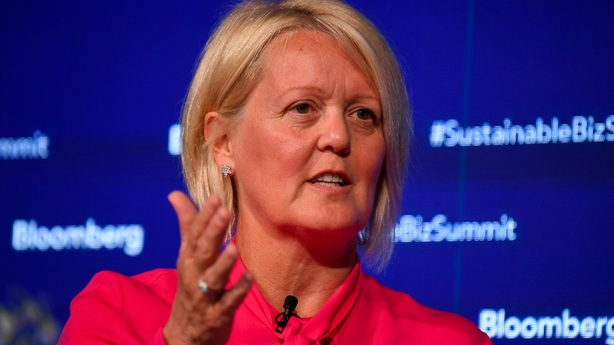NatWest shares suffered their biggest intraday drop in seven years today after a profit downgrade and as it faced regulatory scrutiny over potential breaches in its "debanking" of former Brexit party leader Nigel Farage.
The bank's shares fell as much as 18% in early trading in their largest drop since the Brexit vote in June, 2016.
The stock later pared losses to claw back above the milestone, and were last down 11% this afternoon.
Amid a slew of negative news for the taxpayer-backed bank, analysts said its disclosure in quarterly earnings that its core profit margin for the year would come in at a lower level than previously thought would pressure the stock.
NatWest was plunged into crisis after a decision by its private bank Coutts to cut politician-turned-TV-presenter Farage as a client earlier this year led to a political backlash and ultimately cost former CEO Alison Rose her job.
The Financial Conduct Authority (FCA) said it was reviewing NatWest's governance, systems and controls as part of its supervisory work and declined to comment on whether it was considering enforcement action.
NatWest separately said that an initial review conducted by law firm Travers Smith had found "serious failings" in the bank's treatment of Farage, but said it had found it acted lawfully and mainly on commercial grounds.
The review nonetheless found a number of shortcomings, the bank said, including in how the closure decision was reached, how the bank communicated with Farage and how it treated his confidential information.
NatWest said it would disclose a decision on whether to dock Rose's pay over the matter "as soon as possible".
Chairman Howard Davies told reporters on a conference call that the board had discussed Rose's pay package based on the review, but could not give a timeline.
Farage said in a statement today that he viewed the report as a "whitewash" and its findings "laughable".
Britain's data watchdog said this week that Rose had infringed data protection rules by briefing a journalist about Farage's account, adding to pressure on the bank to curb her payout.
Rose said in a statement that the Travers Smith review had "concluded that I inadvertently confirmed what had already been widely reported, that Mr Farage held an account at Coutts".

She added that the review showed she did not leak detailed financial information and had been unaware of "deeply unpleasant and unfair" internal staff comments made about Farage.
A NatWest document unearthed by Farage in July found that an internal committee had deemed his views did not align with the bank's own. This formed part of the basis for cutting him, the document showed, alongside commercial considerations.
Davies said the report acknowledged other non-commercial factors were discussed, but described them as "supporting factors" and not the principal reason for closing the accounts.
The original flare-up prompted the UK government to accelerate reforms designed to ensure banks did not cut people's services over their lawfully-held political views, although the FCA said last month it had found no evidence so far of this happening.
Britain's finance ministry said in a statement that in order to protect freedom of expression it was changing the rules to force banks to clearly explain account closures and to give more notice. It declined to comment on the specifics of the case.
The turmoil comes at a tricky time, as the wider banking industry grapples with a tough economic outlook, a higher risk of loan defaults in a cost of living crisis, and margin pressure from fiercer competition for savings and mortgage products.
The bank's interim CEO Paul Thwaite and incoming Chairman Rick Haythornthwaite have been tasked with steadying the ship, but analysts said its quarterly numbers showed problems.
NatWest said it now expects its net interest margin - a key measure of lending profitability - to come in just above 3% for the year, instead of a previously more optimistic 3.15% forecast.
The bank reported pre-tax profit of £1.3 billion for the July-September quarter, up from £1.1 billion a year earlier and broadly in line with forecasts.
The results were a "very weak update", analysts at Barclays said, which likely implied a double-digit percentage point downgrade to 2024 profit expectations and reduced expectations for how much the bank will pay out to shareholders.
Rival British banks have reported mixed earnings this week, with Barclays wrongfooting investors by downgrading its profit outlook for the year, while Lloyds held its forecasts.
NatWest owns Ulster Bank and today's results show that Ulster Bank customers in the Republic of Ireland continued to hold deposits totalling £200m in the third quarter of the year.
Back in April, the bank closed the last of its remaining branches here.
Ulster Bank had around 1.1 million customers when it announced in 2021 that it was planning a phased withdrawal from the Republic of Ireland market.

